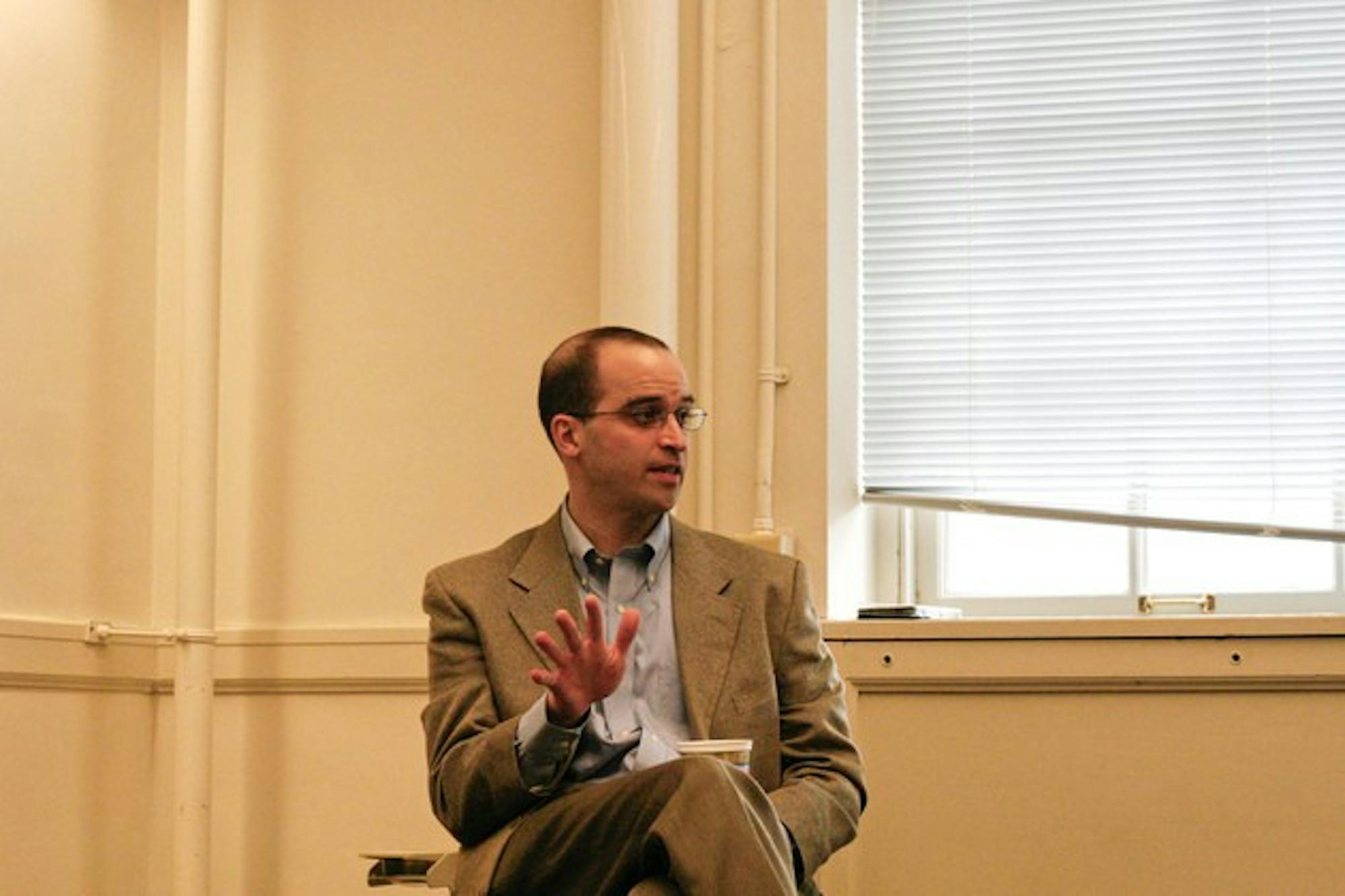"This is the end of the two decades boom, and perhaps bubble, in consumer spending," he said. "It's hard to ask the question of what comes next."
Leonhardt said he does not know what "the next big thing" will be to drive economic growth, as the Internet did in the late 1990s. If the United States does not begin to invest more in its future, he said, then the next economic boom may never come.
While consumer spending has increased to unsustainable levels, investment has stagnated, with government spending on investment declining from 7 percent of GDP to 4 percent of GDP, Leonhardt said.
The new stimulus bill provides the government with the perfect opportunity to begin investing in America again, he said.
"In a way, it's the fiscally conservative thing to do," Leonhardt said. "If we're going to spend all of this money, shouldn't we spend it on things that will help us down the road?"
Of all possible government investments, education is the most critical, he said. Some liberals have begun to question whether education is effective in reducing poverty, Leonhardt said, arguing empirical evidence demonstrates that education is one of the best ways to increase wealth.
College graduation rates for women have increased in the last 30 years by 15 percent, Leonhardt said, and the median wage for women has increased by 30 percent. College graduation rates for males have remained steady, and wages for males have also stagnated, he said.
"One of the things we have learned is that making investments makes a difference," he said. "Education seems like the best investment we can make."
The government will be unable to spend money on education or any other investment without curbing entitlement spending, including Medicare, Leonhardt said.
To meet its future entitlement obligations, the government will have to increase taxes from 18 percent to 30 percent of GDP, he said. Growth in Medicare spending is the main cause of this increase in entitlement costs, Leonhardt said, which is largely driven by rising health care costs rather than the aging of the American population.
"We have an inability to say no to the latest and greatest health care technologies," he said. "In many ways, Medicare will pay for anything that doesn't kill you."
The cost of health care varies significantly in the United States, and most of this variation cannot be explained by health care quality, Leonhardt said. If all health care spending were brought in line with that of low-cost region, he said, the future government deficit could be greatly reduced. He added that tax increases would still be necessary.
Despite the current economic climate, Leonhardt said he remains optimistic about America's future long-term growth. He praised President Barack Obama's administration for its perceived emphasis on empiricism and the large number of Ph.D. economists that are members of the Obama team. Leonhardt said, however, that he worries the administration lacks the will to move forward with politically unpopular initiatives like raising taxes or curbing health care spending.
"The short-term situation is incredibly frightening," he said. "It's important in moments like this not to lose sight of the long-term challenges," he said.




